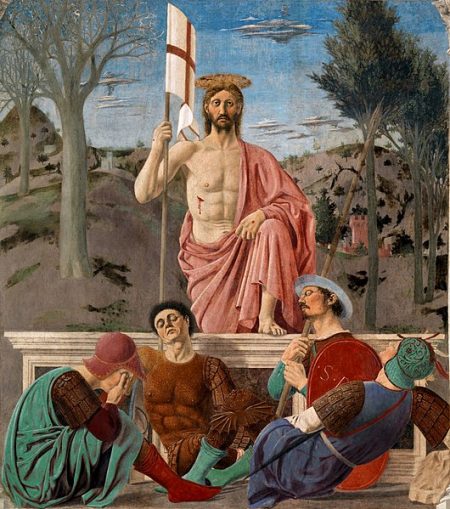“Christ the Lord is risen!” Christians down through the ages have affirmed during Easter. “He has risen indeed.” But we are called not simply to believe this greatest of great truths. We are called to live by it.
As men, women, and young people’s whose lives are established in the risen Christ, our calling is not simply to believe that Christ rose, necessary as this is. Further and deeper and more immediately, God calls us to experience the resurrection.
“But how is that possible?” you ask. It’s a good question. We weren’t there on the road to Emmaus. We weren’t hiding out with the disciples in the upper room. We weren’t in the boat as the risen Jesus, standing on the shore, directed his friends to haul in the miraculous catch.
By the Spirit who lives within us, we have the capacity to encounter the resurrected Christ. He is not an idea or an example coming to us from the distant past. He is the risen and still-living Lord! Invading our personal history, Jesus reigns as Lord of creation and continues to build what the Bible calls this “the Kingdom of God.” And we don’t believe that this kingdom has simply started; we believe the kingdom is currently advancing.
This movement of Christ firstly moves us toward one another, which requires involvement in each other’s lives. It is a mutual encounter that bleeds from the vertical axis to the horizontal. The New Testament calls this the Body of Christ. We don’t simply believe that this body was born; we believe it lives.
As Paul encountered the risen Christ on the road to Damascus, we likewise have our moments of awakening. Such encounters enliven the soul with resurrection power. Darkness becomes light, bondage is broken, and bitterness is turned to joy. In this posture we address the world with the good news, news that has changed us for the better. In doing so, we don’t believe that the Father simply declared the Lordship of Jesus in the resurrection from the dead; we believe that God continues to declare the good news through his Church.
But this resurrection life is not peaches and cream. Until Jesus returns, such life wears a thorny crown. The presence of the resurrection brings with it the cross of Christ, for we cannot rise with Christ unless we have first died with him. The sting of death is sin, which lays all of us in the dust. But Jesus went lower still, even to death on a cross, in order to raise us in new life. We don’t believe that we were simply made God’s new creation; we believe that we are his new creation.
When Paul the apostle looked back upon his days as a faithful Jewish observer of religious stipulations, he confessed that it was all meaningless. He wanted only one thing. In his words:
Indeed, I count everything as loss because of the surpassing worth of knowing Christ Jesus my Lord. For his sake I have suffered the loss of all things and count them as rubbish, in order that I may gain Christ and be found in him, not having a righteousness of my own that comes from the law, but that which comes through faith in Christ, the righteousness from God that depends on faith— that I may know him and the power of his resurrection, and may share his sufferings, becoming like him in his death, that by any means possible I may attain the resurrection from the dead (Phil. 3:8-11).
Like Paul, we don’t restrict resurrection power to the historical event, as important as that was. No, we believe that it extends through time to categorically define our past, present, and future, endowing our lives with new creation reality. Because of this, we now live a new kind of life. It is a life that, however imperfectly, experiences the resurrection.
Among the gifts that resurrection offers is the gift of sight. We suddenly acquire the ability to see God’s hand of provision. Like Augustine, Pascal, Luther, Newton, and countless others in history, our eyes are opened to recognize how the empowering presence of Christ now defines our reality. To this day, I don’t have a better way to describe it than with the words of John Newton:
Amazing grace, how sweet the sound
that saved a wretch like me.
I once was lost, but now I am found,
was blind, but now I see.





